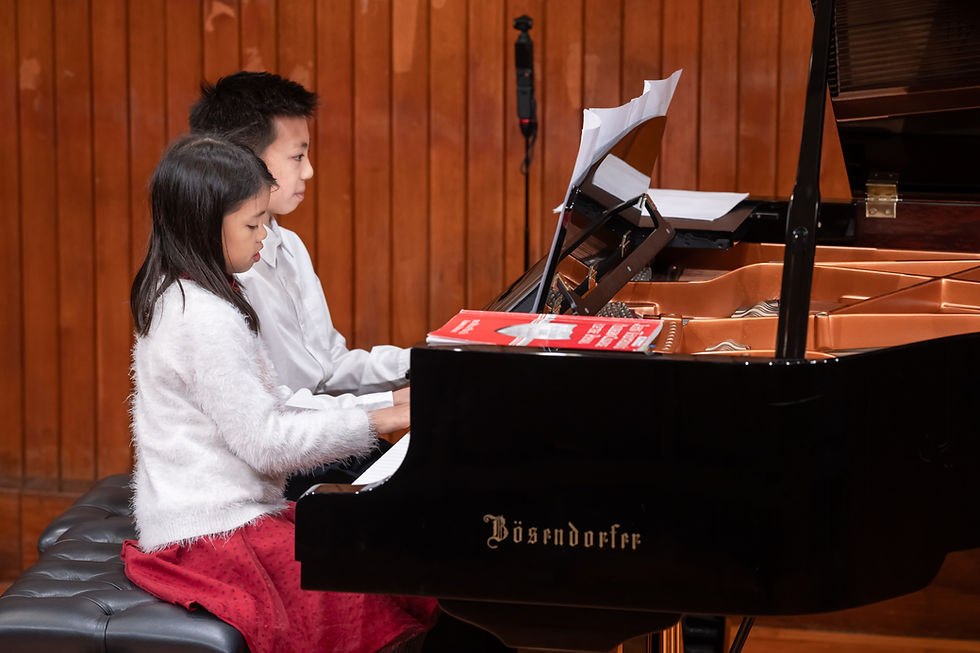Tips for Preparing Kids to Play Violin!
- jochan3
- May 7, 2023
- 2 min read
Updated: May 13, 2023

Studying violin has several benefits for younger children.
Firstly, it can help them develop hand-eye coordination and fine motor skills, as playing the violin requires precise finger placement and bowing techniques.
Additionally, learning to read sheet music and navigate different keys and scales can improve a child's cognitive abilities and memory skills.
Playing the violin can also provide an important outlet for self-expression and creativity, while helping children develop discipline, focus, and perseverance.
Finally, if a child becomes proficient at playing the violin, it can open up a range of opportunities for personal and professional growth, such as opportunities to play in orchestras, perform in concerts, and explore a lifelong interest in music.

Preparing kids to play the violin,requires patience and creativity. Here are some tips to get you started:
1. Start with a positive attitude. Encourage your child and help them approach practice with a sense of excitement and curiosity.
2. Create a musical environment. Play music in the house, attend live concerts or performances, and talk openly with your child about your love of music.
3. Make practice fun. Incorporate games, challenges, and rewards into practice sessions to help your child stay motivated and engaged.
4. Set achievable goals. Break down larger pieces or skills into smaller, more manageable goals so your child feels a sense of accomplishment and progress.
5. Be consistent. Schedule regular practice times and stick to them, even on busy days or weekends.
6. Find a good teacher. Look for a teacher who is patient, encouraging, and able to tailor their instruction to your child's learning style.
7. Celebrate successes. Celebrate milestones, recitals, and achievements along the way to keep your child inspired and proud of their progress.



Comments